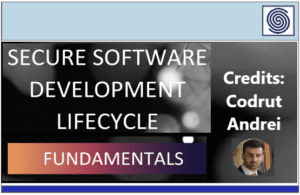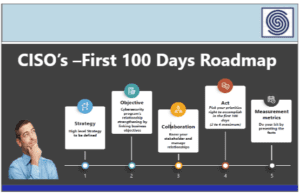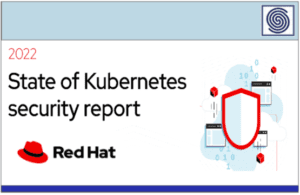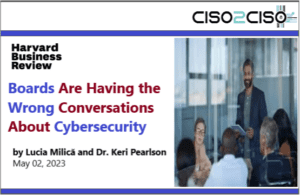Source: www.mcafee.com – Author: Alex Merton-McCann.
My mother recently turned 80, so of course a large celebration was in order. With 100 plus guests, entertainment, and catering to organise, the best way for me to keep everyone updated (and share tasks) was to use Google Docs. Gee, it worked well. My updates could immediately be seen by everyone, the family could access it from all the devices, and it was free to use! No wonder Google has a monopoly on drive and document sharing.
But here’s the thing – hackers know just how much both individuals and businesses have embraced Google products. So, it makes complete sense that they use reputable companies such as Google to devise phishing emails that are designed to extract our personal information. In fact, the Google Docs phishing scam was widely regarded as one of the most successful personal data extraction scams to date. They know that billions of people worldwide use Google so an invitation to click a link and view a document does not seem like an unreasonable email to receive. But it caused so much grief for so many people.
It’s All About Phishing
Emails designed to trick you into sharing your personal information are a scammer’s bread and butter. This is essentially what phishing is. It is by far the most successful tool they use to get their hands on your personal data and access your email.
‘But why do they want my email logins?’ – I hear you ask. Well, email accounts are what every scammer dreams of – they are a treasure trove of personally identifiable material that they can either steal or exploit. They could also use your email to launch a wide range of malicious activities from spamming and spoofing to spear phishing. Complicated terms, I know but in essence these are different types of phishing strategies. So, you can see why they are keen!!
But successful phishing emails usually share a few criteria which is important to know. Firstly, the email looks like it has been sent from a legitimate company e.g. Microsoft, Amex, or Google. Secondly, the email has a strong ‘call to action’ e.g. ‘your password has been changed, if this is not the case, please click here’. And thirdly, the email does not seem too out of place or random from the potential victim’s perspective.
What To Do To Prevent Your Email Being Hacked?
Despite the fact that scammers are savvy tricksters, there are steps you can take to maximise the chances your email remains locked away from their prying eyes. Here’s what I suggest:
- Don’t Fall Victim to a Phishing Scam
Never respond to an unexpected email or website that asks you for personal information or your login details no matter how professional it looks. If you have any doubts, always contact the company directly to verify.
- Protect Yourself!
Make sure you have super-duper internet security software that includes all the bells and whistles. Not only does internet security software McAfee+ include protection for daily browsing but it also has a password manager, a VPN, and a social privacy manager that will lock down your privacy settings on your social media accounts. A complete no-brainer!
- Say No to Public Wi-Fi and Public Computers
Avoid using public Wi-Fi to log into your email from public places. It takes very little effort for a hacker to position themselves between you and the connection point. So, it’s entirely possible for them to be in receipt of all your private information and logins which clearly you don’t want. If you really need to use it, invest in a Virtual Private Network (VPN) which will ensure everything you share via Wi-Fi will be encrypted. Your McAfee+ subscription includes a VPN.
Public computers should also be avoided even just to ‘check your email’. Not only is there a greater chance of spyware on untrusted computers but some of them sport key-logging programs which can both monitor and record the keys you strike on the keyboard – a great way of finding out your password!
- Passwords, Passwords, Passwords
Ensuring each of your online accounts has its own unique, strong, and complex password is one of the best ways of keeping hackers out of your life. I always suggest at least 10-12 characters with a combination of upper and lower case letters, symbols, and numbers. A crazy nonsensical sentence is a great option here but better still is a password manager that will remember and generate passwords that no human could! A password manager is also part of your McAfee+ online security pack.
What To Do If Your Email Is Hacked?
Even if you have taken all the necessary steps to protect your email from hackers, there is the chance that your email logins may be leaked in a data breach. A data breach happens when a company’s data is accessed by scammers and customers’ personal information is stolen. You may remember the Optus, Medibank and Latitude hacks of 2022/23?
If you have had your personal information stolen, please be assured that there are steps you can take to remedy this. The key is to act fast. Check out my recent blog post here for everything you need to know.
So, next time you’re organising a big gathering don’t hesitate to use Google Docs to plan or Microsoft Teams to host your planning meetings. While the thought of being hacked might make you want to withdraw, please don’t. Instead, cultivate a questioning mindset in both yourself and your kids, and always have a healthy amount of suspicion when going about your online life. You’ve got this!!
Till next time,
Stay safe!
Alex

Introducing McAfee+
Identity theft protection and privacy for your digital life
Original Post url: https://www.mcafee.com/blogs/tips-tricks/how-to-prevent-your-emails-being-hacked/
Category & Tags: How To Guides and Tutorials,Internet Security,Family Safety,cybercrime,malware,endpoint protection,computer security,protecting kids online,email and web security – How To Guides and Tutorials,Internet Security,Family Safety,cybercrime,malware,endpoint protection,computer security,protecting kids online,email and web security
Views: 1




















































